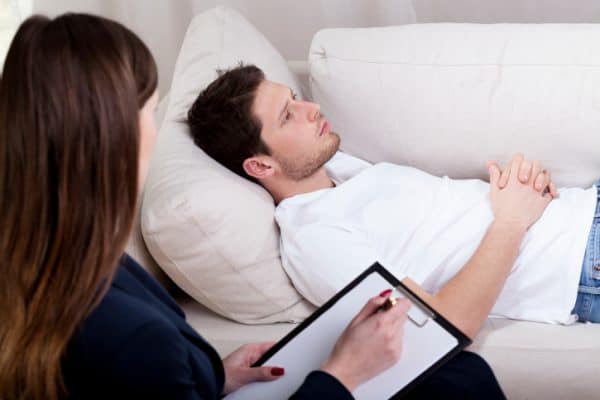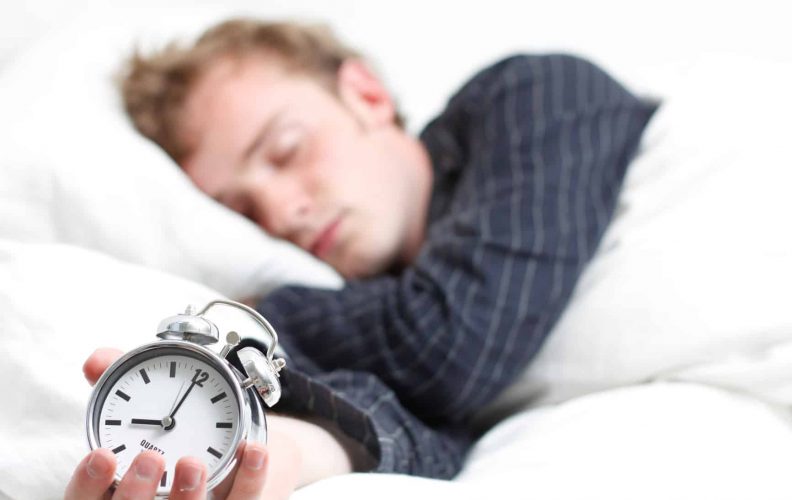Using Hypnosis for Better Sleep
Disclosure: We use affiliate links and may receive a small commission on purchases.
 Using Hypnosis for Better Sleep
thefitbay.com
Using Hypnosis for Better Sleep
thefitbay.com
One of the most common reasons why people often feel frustrated and stressed is because of a lack of sleep. This is also a major reason why people often consult their healthcare provider. The National Sleep Foundation defines insomnia as a medical condition that involves difficulty in falling or remaining asleep. Approximately 50 to 70 million adults suffer from some form of sleeping disorder in the U.S.

Insomnia is associated with high morbidity. People who suffer from this problem often experience fatigue, lack of energy, low performance levels at work and/or school and emotional and mental instability. There is no easy treatment for insomnia. The available medications do work but are expensive and can only be used for a short period of time because of the risk of dependency and adverse effects. That is why people often choose to try alternative methods of treatment so that they are able to avoid drug dependency as well as find a more natural and long-term solution to their sleep problem.
Over the past two decades, one such therapy that has shown real promise to treat insomnia is hypnosis.
What is Hypnosis?
Hypnosis is a trance-like state where the individual is asked to focus or concentrate on a specific thing/issue/problem. The process of hypnosis is usually performed by a trained therapist who uses verbal phrases, often repeated, and sometimes mental images to place the patient’s mind into a trance like state.
The process of hypnosis is based on the premise that the therapist’s voice and his words will put the individual’s mind at peace and their body would relax and they would feel a sense of calm and contentment. The goal is to make the individual go to a place where they feel safe and secure and once they are in that place, they are asked to think about the issue on hand and then remove it or alter it in their mind. While there are people who are sceptic about the effectiveness of hypnosis, there are also those who believe that when performed well, hypnosis can work as well as pharmaceutical drugs, and even better in some cases, such as insomnia. However, it is important to understand that hypnosis is not an immediate solution. People generally require a few sessions before they can solve their problem.
Role of Hypnosis in Sleep

Hypnosis has been used to treat a wide variety of sleep disorders including difficulty falling asleep, interrupted sleep, waking up in the middle of the night and restless sleep. The biggest advantage of hypnosis is that it is an entirely non-invasive procedure with no cuts and bruises, no needles and no drugs.
Performing Hypnotherapy
Hypnotherapy for sleep problems is done in an outpatient setting. In most cases, the therapist explains to the patient the entire procedure as to what will happen, how it will happen and what possible impact it will have. Once the individual is mentally ready for the procedure, the therapist will ask the patient to sit in a comfortable sofa or a reclining chair. Throughout the hypnosis session, the therapist will talk to the patient in a calm and soothing manner. The tone and style of the therapist can play a very important role in how effective the hypnosis session is. That is why it is critical to find a therapist who has the necessary skills and experience to conduct these sessions.
The therapist’s voice will help create a sense of well-being. The goal is to make the patient feel at peace and to become completely relaxed. When this is achieved, the therapist then moves on to the next step. During this step, the therapist would provide suggestions to the patient on how to induce sleep, ease their stress and get a good night’s rest. In some cases, the therapist may create certain mental images that may aid in helping the patient get rid of the barriers that are preventing them from sleeping properly.

The hypnotist will teach the patient how to relax so that their anxiety and stress levels are reduced. In addition, the therapist will also teach the patients self-hypnosis so that once they are comfortable and accustomed to the technique, they can perform the therapy on their own, whenever they find it difficult to sleep or when they feel that their stress levels are too high. The therapist will also teach the patient’s brain how to respond to a stressful situation in a positive way. By doing so, the patient’s mind will alter the way it usually operates and will begin to interpret stressful situations in a completely different manner. Patients will realize that they can achieve their objective by simply staying calm, relaxed and in control during times of stress and tension.
Once the hypnosis session is over, the therapist will take the patient out of the state of trance. This is typically done by counting down from 10 to 1. Some people have the impression that once a hypnosis session is over, the patient will lose their senses or won’t know what happened or what they did. That is not the case. The goal of hypnosis is to train the mind to behave in a certain manner and that behaviour will be adopted by the patient on a long-term basis.
Additional Tips
Since hypnosis has gained significant popularity, especially for treating insomnia, there are many therapists who have started to offer this treatment. However, the effectiveness of hypnosis is greatly dependent on the quality and skill of the therapist. That is why it is important to avoid going to any random therapist but in fact, conduct a proper research, ask your healthcare provider for a recommendation, read online reviews etc. and then select a proper therapist who has the license, the experience and the qualification.

Hypnosis may not work for everyone. It is largely a matter of faith and belief in alternate therapies as well your choice of therapist that can determine how successful this treatment method is. But compared to medical treatment, hypnosis has shown more promise for the treatment of insomnia and other sleep related disorders.










